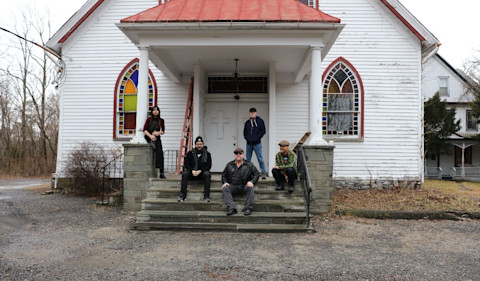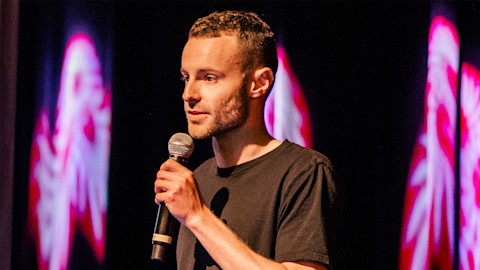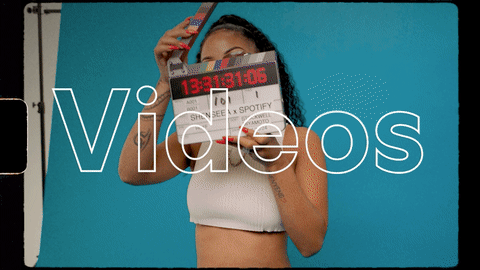Stories
Being a Student of the Game Is Bri Steves’ Secret to Success

The rapper’s seemingly overnight ascension had nothing to do with luck.
Bri Steves attended Philadelphia’s Made In America festival as a fan in 2017; this year, the 23-year-old rapper and singer took the stage with Kendrick Lamar, performing her sweet-and-sour debut single, “Jealousy.” But her meteoric rise is no fluke: Steves’ work ethic lowered the probability of mediocrity to nearly zero. In an era of overnight virality, the Philly native is a true student of the game, out-grinding just about everyone to perfect her craft. During her time at Temple University, Steves dedicated herself to mastering every aspect of the process of making a song—from songwriting to production to recording to engineering. She even watched lectures broadcast on YouTube from record executives, studying tips on how to set yourself up for a major label deal. One of those lectures happened to be from Julie Greenwald, the chairman/COO of Atlantic Records—the same woman who would eventually welcome Steves into the Atlantic Records family. Here, in her own words, Steves breaks down the lessons she learned from Greenwald, her DIY production and recording methods, and the importance of tunnel vision.
Spotify for Artists: How did you initially get into music?
Bri Steves: Oh man—I’ve been writing music as long as I know. I started off with poetry. I wrote about kind of the same stuff my songs are about—my troubled relationships at the time, my heartbreak. I’ve always been on and off rapping, going to different studios. But it wasn’t until college when I started really investing in recording, and teaching myself how to engineer and produce while I was in school.
Was there a particular moment when you decided: Okay, I’m going to take this rap thing seriously as a career path?
That happened my junior year in college. Basically, I was on a different path. I wanted to do fashion. I was going to get an internship and get a real job. But I got invited to a studio in South Philly by some people who’d put me on a show. This was the first time I met full-time producers, full-time engineers, full-time songwriters. And when I got to meet like-minded people for the first time, who did nothing else but music, it kinda clicked for me then, and that’s when I decided I wasn’t gonna do anything else.
How did you put yourself out there initially, in order to find those people?
I started putting songs out on SoundCloud back in high school, but from there, I had gotten put on odd shows. I started performing at Pub Webb, [a venue] on my campus at Temple University. Through word of mouth, I got introduced to another kid who was putting on shows at Voltage Lounge in Philly, and once I met them, they’d say, “Oh, we’re chilling at the studio, come through!” So it was really all word of mouth, and just networking.
And from there, you taught yourself how to record, and essentially built your own studio?
I did. It was pretty difficult, because my stuff sounded horrible at first. I had about $3,000 saved up for a car, and I spent it all in one day—on speakers; I went half [in] on a laptop with my mom; I got my microphone, a microphone stand, cords and cables, you name it. I had Logic [the production software] put on my laptop from a friend, and I’d go down to the studio every single day and I would watch how they would work in the sessions. I would see what they would use on the vocal chains, and okay, how does this work? What is this plug-in called? How do I actually record? And after watching them do it, I would go home and mimic that, so that I could sound like that. It took a solid year to become comfortable. But it makes it easier when you have people to watch.
What else did you do to master your craft? Can you tell us more about the YouTube videos you watched and meeting Julie Greenwald?
Yeah, Julie had this one interview on YouTube that was about an hour or two long. She was telling people about her story, and using it as a guideline for other artists. She was like, “You’ve got got to figure out what’s your story, what’s your narrative, what’s your point of view?” And she said, “Don’t change for the industry—if you’re good, the industry will come to you.” So I wrote all this down in my composition book. Eight months later, I was meeting her. I was like, “Okay! This is crazy!”
Did you tell her about it?
I did! I’d brought that exact composition book up and showed her my notes. And it was crazy, because she told me that she hadn’t wanted to do that interview—she doesn’t like to do interviews at all. But a friend told her, “There’s some artist out there that needs to hear what you’re saying,” and that was why she did it. I was like, “I’m glad they said that to you!”
What was the most important thing you took away from all that?
You have to find a way. [Greenwald’s] approach to everything was, it’s not “Can this get done?” It’s just a matter of how it’s gonna get done. And something else I really took from it was, not to change for the industry. Everybody’s trying to be like whatever artist is currently popping at the time. But as long as you’re really invested in your own sound, and you really believe in your own music, the industry will come to you. You never have to chase after trends. Once you find yourself doing that, you’re kind of lost.
There’s so many different routes to success these days, and not all of them involve a major label. But for you, it seems like it’s been working out.
Yeah, for me it’s been working out. I have a really great team, so I’m not walking into any situation blind, or any of those crazy stories about labels—that isn’t my situation.
Is there any advice you’d give to newer artists who are starting from square one, or haven’t quite broken through?
You have to create tunnel vision. And it’s really imperative that you believe in yourself early on, because you’re not going to get the type of monumental support from other people until later. So you really have to be comfortable just putting your head down and doing the work, focusing on your craft, and getting better.
—Meaghan Garvey
Spotify for Artists helps you to develop the fanbase you need to reach your goals.
video
How Julia Wolf Made It



